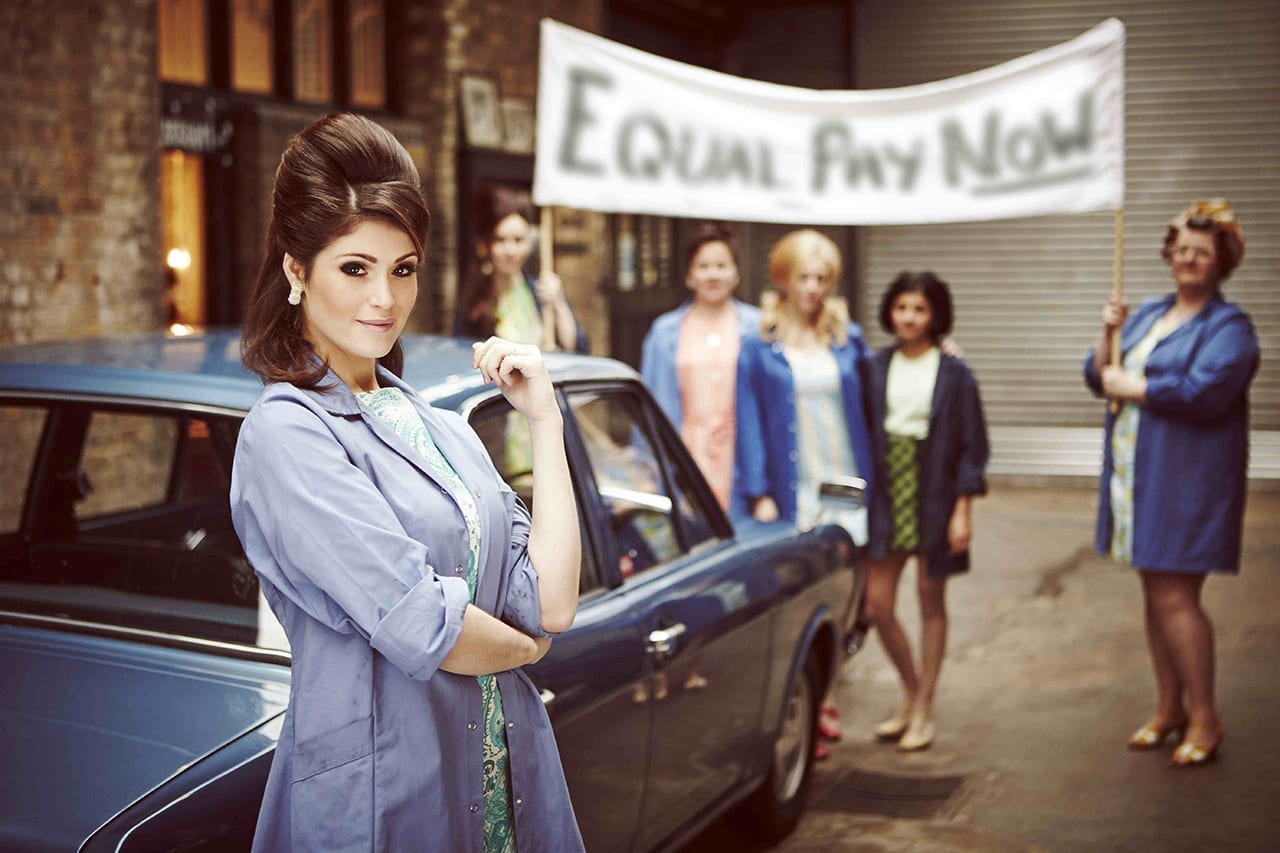There’s an awful lot of convenient zeitgeist surrounding Made In Dagenham, the screen-to-stage musical adaptation starring Gemma Arterton which has just opened at The Adelphi.
As with Ford in 1968, so with Walmart and Asda now. The problem is that The Equal Pay Act, brought in by Barbara Castle in 1970 whilst she was part of Harold Wilson’s 1964-70 Labour government – which was ultimately the outcome of the strike by female Ford workers at the Dagenham plant – was supposed to put an end to employers not paying equal pay.
No matter. To the show. I should perhaps say straight up that I found it considerably more appealing than I thought would be the case, with a bredth of emotional appeal and a depth of originality far greater than the performance of the Act One closer on Saturday Night at The Palladium a few weeks back suggested would be the case.
So, why no glowing five-star review? Well, I’ll come to that but let me first give you the positives.
David Arnold’s music is actually not half bad for a composer best known for his film scores, and Richard Thomas’s lyrics are witty and sometimes outrageously funny, though there were also, I admit, places where I winced at the ineptitude of the word setting.
The star of the show, however, is certainly Bunny Christie’s Ford-factory-cum-Airfix-model set, around which the cast move with ease due to Rupert Goold’s fluid direction.
The show is, as you will gather, the story of Rita O’Grady (former Bond-girl Gemma Arterton on impressive form making her musical theatre debut), a machinist making seat covers in Ford’s Dagenham car plant who tries simultaneously to look after her uncaring husband Eddie (Adrian Der Gregorian) and two children whilst holding down her job. The women in the factory are coarse and vulgar, and how refreshing to see real working class women portrayed that way on stage.
A pay and grading exercise is undertaken at the plant, and the women are re-graded but still don’t have parity with the men. Feisty shop-steward, Connie, (Isla Blair) takes Rita with her to a meeting with management where they are to bring up a grievance, however, the women have a change of heart and decide that they’re going to have a vote to see if they want to go on strike in a bid for equal pay.
The women decide to strike, and manage to get their co-workers in Liverpool to come out on strike in sympathy.
Ford in the USA send over a trouble-shooter, Tooley (Steve Furst playing the role almost as a pantomime baddie) to sort things out, however his intransigence makes the women even more determined, and he closes the plant, putting the men out of work.
At the launch of the new Ford Cortina things don’t go to plan, and amid the chaos, Rita meets Barbara Castle (Sophie-Louise Dann who has the nearest thing to an eleven O’Clock number with ‘In An Ideal World’ which also features some magnificent video design by ‘Treatment’) who invites the striking women to Westminster.
Rita is asked by the now-dying Connie to speak at the TUC conference in Eastbourne, which she does, winning them over for a vote in favour of equal pay.
So what is there not to like?
Well, I’m afraid that like so many musicals before it, the problem lies with (in this case) Richard Bean’s book. The character of Rita is almost completely passive. To begin with we don’t know what she wants, and anything she ends up pursuing is because other people have asked her so to do. As a result, we have very little emotional involvement with her on what should be a topic which can easily take the audience along for the ride.
This would probably work in a play, as it does on film, but Musical Theatre is a very different beast, and sadly one which here has been undersold.
Did I enjoy Made in Dagenham? Yes, in parts it was a thoroughly British and downright smutty as watching the best of The Carry On films. Would I pay money to go and see it again? I think it unlikely.

